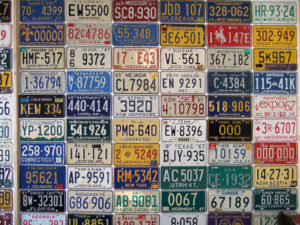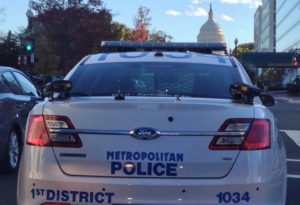There are more or less 268 million registered vehicles in the US with only 221 million licensed drivers. There is a reasonable assumption that people who own a car are generally the driver. Let’s face it–most folks would generally not lend out their vehicles except for a good reason. In order to drive a car, the vehicle must be registered with at least a back license plate (and sometimes a front—depends on the state) for identification. Most of us would probably believe that our license plate number is a personal identifier.
In late April, the Virginia Supreme Court gave a partial victory to a Virginia man with the help of the American Civil Liberties Union (ACLU) who had challenged the collection of data by automated license plate readers (ALPRs) under a Virginia privacy law. The Virginia court ruled that data collected by the police using ALPRs is not exempt under the state’s Government Data Collection and Dissemination Act which states that personal information “shall not be collected by state agencies unless the need for it has been clearly established in advance.” The court did, however, send the case back to a lower court for fact-finding on how police can link plate numbers with vehicle owners.
Virginia’s privacy law is pretty clear in defining personal information: All information that affords a basis for inferring personal characteristics. The ACLU said that it is becoming easier to connect separate sets of data about people and then infer things through analysis. Cross-referencing vehicle location data with registered vehicle owner datasets will allow anyone to identify someone without sophisticated analysis.
What are ALPRs?
The Electronic Frontier Foundation (EFF) has this definition:
ALPRs are high-speed, computer-controlled camera systems that are typically mounted on street furniture such as light poles, street lights and highway overpasses. They can also be mobile—attached to police squad cars or inside mobile trailers.
ALPRs capture all license plate numbers that come into camera range along with the location, date, and time. It is a camera system that takes a photograph of the vehicle and sometimes even the driver plus passengers. After all this data is collected, the information is then uploaded to a central server.
Some ALPRs mounted on overhead passes can capture four lanes of traffic rushing past at a high speed limit. Police can know in minutes if a plate number has an issue:
- Has the car been involved in a crime?
- Is the car stolen?
- Is the car out of registration and is it insured?
Worst of all, if the area is loaded with ALPRs, a car can be tracked from origin to destination point and any stops in between. It doesn’t matter if you have never done anything to be suspect, your car will still be tracked along with everyone else’s.
The ACLU estimates that less than 0.2 percent of all cars scanned link up to criminal activity or vehicle registration issues. In order to catch suspected criminals, police would like to have the ability to identify travel patterns and to find out if different vehicles can be associated with each other. Why is this an issue? Depending on the state, the data gathered can remain on databases for a week, a couple of months, a year or forever. When you put all this info together, police (and even private companies) can paint an intimate portrait of your driving life whether you want them to or not.
Americans have a right to free speech and freedom of organization but if your license plate number is continuously monitored and your car is tracked, then by proxy, so are YOU and those cherished rights become compromised.
Nebraska’s New Law on ALPR Data Collection
Signed by the Governor in February 2018, the new law going into effect this summer, prohibits the use of ALPRs except for specific reasons: missing persons, outstanding traffic or parking violations, registration violations, and persons with outstanding arrest warrants. Also, parking facilities may use ALPRs to regulate cars. The new law prohibits storage or sharing of the data and it cannot be retained for more than 120 days without a warrant. The state will not be permitted to create permanent databases from the ALPR data which will make it less likely that the information will land in federal databases.
A Recent California Court Case
Los Angeles County is public information. (1.2 million cars are recorded each week by the Los Angeles Police Department.)
Both the ACLU and EFF brought a suit in 2012 to ascertain just one week’s worth of data. The Supreme Court decision reversed a lower court finding that plate numbers, time and location information were “investigative records” of the county’s police departments and were permitted to keep them secret. The Supreme Court ruled that the release of the data would not jeopardize policing methods even though the raw data might need to be redacted to prevent illicit use of the data which could reveal travel habits of individual car owners.
The use of ALPR data by law enforcement and even for-profit companies will continue to be questioned by lawmakers and the courts. This automated traffic enforcement issue will not be going away any time soon!
Learn more and help the NMA advocate against this invasion of privacy by joining the NMA today!









